Because summer music festivals rely heavily on the tourist dollar, most do not take on a lot of risk when it comes to programming. After all, rehearsal time can be limited in the summer, leaving little room to learn new works, let alone promote them. But as I discovered while putting together a summer festival guide for the April BBC Music Magazine, there are new and compelling approaches if you look for them. Here are five trends to watch for as the summer of 2019 approaches.
1. Adult Learning Takes a Priority
The Tanglewood Festival this summer unveils the Linde Center for Music and Learning, a $33 million, four-building auditorium and rehearsal complex on the site of a former overflow parking lot. The facility is expected to host 140 events, including a film series, public masterclasses and talks by such notables as Madeleine Albright and Doris Kearns Goodwin. One series of events will focus on the art of Georgia O’Keefe and Alfred Stieglitz, just as Renée Fleming and Rod Gilfry premiere Kevin Puts’ The Brightness of Light, a work inspired by letters between the artists. The Tanglewood Learning Institute, as the program is called, is “inspired in part by a wider evolution towards learning and participatory activities that complement the concert experience,” says Boston Symphony president and CEO Mark Volpe.
The programming seems loosely modeled after the Bard Music Festival in Annandale-on-Hudson, NY. Each August, it hosts two weekends of concerts, talks and film screenings dedicated to a specific composer and their cultural and social environment (this year it’s Erich Wolfgang Korngold).
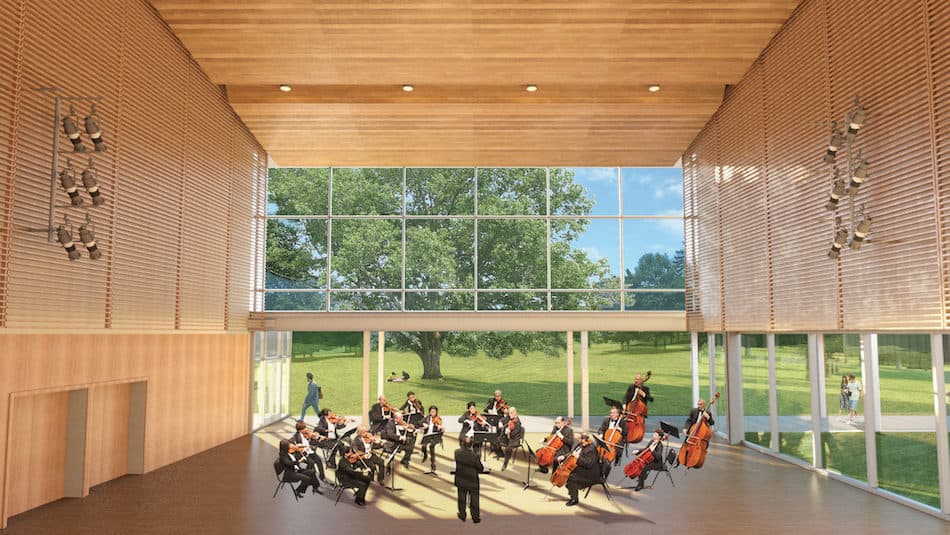
2. New Festivals in Eastern Europe
While some festivals are marking 70, 75 or 90 years in business, new ones are also cropping up. Riga, Latvia will host the inaugural Jurmala Music Festival, a four-weekend event in July and August 2019 helmed by the Bavarian Radio Symphony Orchestra and featuring stars like pianist Yuja Wang, tenor Joseph Calleja and violinist Vadim Repin. It is directed by Martin Engstroem and Miguel Estaban, who are currently co-directors of the Verbier Festival.
Further east, the town of Tsinandali, Georgia will host the first Tsinandali Festival (Sept. 8-22), an event also co-founded by Engstroem. The starry lineup includes violinists Lisa Batiashvilli and Renaud Capuçon, pianists Wang and András Schiff, mandolinist Avi Avital and baritone Thomas Hampson.
3. The Touring Circuit Shifts Gears
Orchestra touring in North America usually fits a preset pattern: Ensembles pack up during the fall or winter months and hit the U.S. coasts, with the occasional visit to Chicago, Ann Arbor or Montreal. The London Symphony Orchestra breaks this mold with a summertime debut at Santa Barbara’s Music Academy of the West (July 12-14), as part of a three-season residence at the festival/training academy.
Meanwhile, the Chamber Orchestra Vienna-Berlin, an ensemble comprised of members from the Berlin and Vienna Philharmonic Orchestras, makes its North American debut at the Bravo! Vail festival in Vail, CO, with Anne-Sophie Mutter performing all five of Mozart’s Violin Concertos.
And the Ravinia Festival, near Chicago, hosts two bands from abroad: the Shanghai Symphony, conducted by Long Yu, and the Lucerne Symphony Orchestra, led by James Gaffigan, which features Anne Akiko Meyers performing the Barber Violin Concerto.
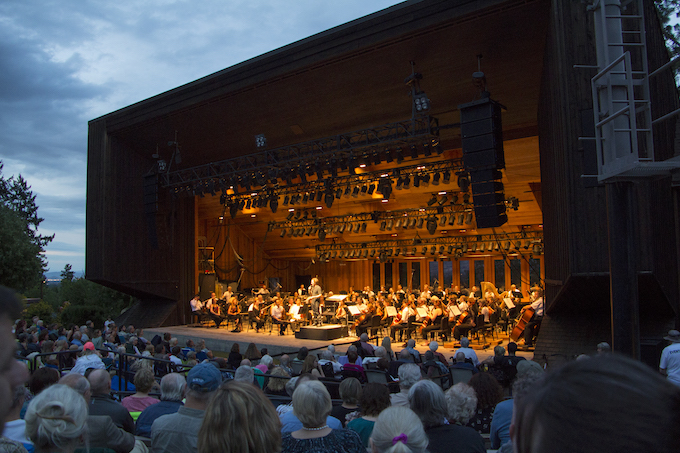
4. Strides For Women Composers
Mirroring an industry-wide focus, several music festivals are showing some greater love to women composers than in seasons’ past. They include Oregon’s Britt Music and Arts Festival, where composer Caroline Shaw is in residence as both a composer and conductor; the Aspen Music Festival, which offers up Missy Mazzoli’s opera Proving Up (about Nebraskan homesteaders in the 1870s); the Saratoga Springs Performing Arts Center, where the Philadelphia Orchestra presents Anna Clyne’s curtain-raiser Masquerade; and Caramoor Festival, where the vocal group Roomful of Teeth presents works by both Shaw and Mazzoli.
5. Steps Towards Sustainability
Music festivals are not known for being kind to the environment, often involving heavy automobile travel, food waste, electricity use and water bottle consumption. But a few festivals are promoting eco-friendly practices. The Glyndebourne Festival in the U.K. was among the first to take a number of green measures, including the construction of a wind turbine in 2012. Lincoln Center, home to the Mostly Mozart Festival and Lincoln Center Out of Doors, says it purchases all of its energy from renewable sources and has added reflective rooftops and even solar panels to buildings, among other steps. Wolf Trap, in Virginia, has planted vegetable gardens to supply food for its on-site vendors, while enlarging its compositing and recycling efforts. And Tippet Rise, a relatively new festival in Montana, has touted its eco-friendly practices and in January announced a LEED Gold certification for its Olivier Music Barn.
Top Photo: Filene Center at Wolftrap (Photo: Robert Llewellyn)

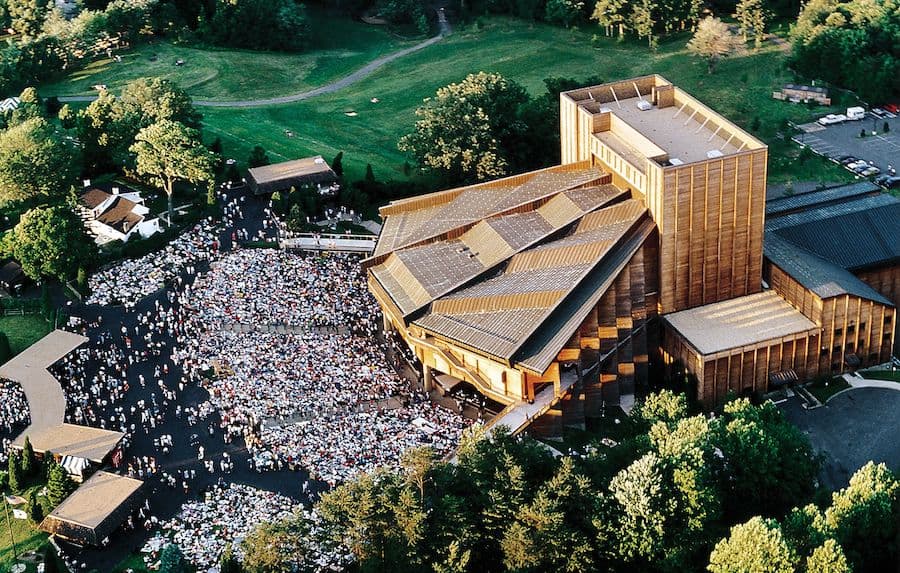
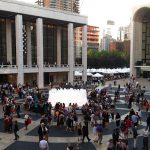
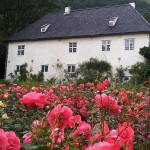

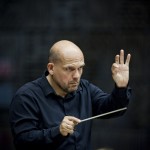


Leave a Reply